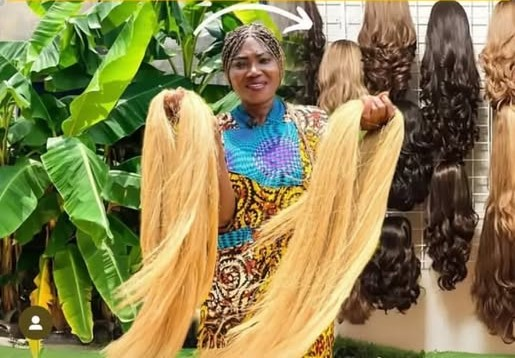Tare Robinson Korumene transforms discarded plantain stems into eco-friendly fashion and household products while creating jobs, reducing waste, and driving sustainable innovation in Nigeria.
Plantain farming is a way of life in Yenagoa, Bayelsa State. However, the thick, heavy stems that once held the fruit are usually left behind after the harvest. Most farmers discard them to rot, but Tare Robinson Korumene saw something different.
In 2023, she founded Eco FIP Nigeria Limited, which turns these abandoned plantain stems into eco-friendly products like hair extensions, bags, shoes, packaging, and biodegradable utensils. Her goal was to reduce agricultural waste, promote sustainable living, and create jobs in her community.
The process behind Eco FIP
When Tare Robinson Korumene founded Eco FIP Nigeria Limited in 2023, she was simultaneously tackling the problems of agricultural waste and unemployment.
“A lot of people are amazed when I wear this and go out, and they know that it is made from plantain. How? Things that are often considered waste are what we are using to create jobs,” African Folder reported Tare Robinson Korumene, saying.
Based in Yenagoa, Bayelsa State, Eco FIP transforms discarded plantain stems into eco-friendly products such as hair extensions, bags, shoes, packaging, and biodegradable utensils. Instead of allowing plantain pseudostems to rot after harvest, her team of 22 employees collects them. They cut the stems into smaller pieces, run them through machines that extract strong, usable fibres, and process them into sustainable, market-ready products.
Working toward a zero-waste model
The production process at Eco FIP is organic and chemical-free. Fibres are softened naturally, dyed with plant-based dyes, and crafted into durable, stylish products. Even the byproducts are used: leftover pulp is used for pillows, and extracted liquid is repurposed to grow mushrooms.
Eco FIP’s products are eco-conscious and functional alternatives for fashion and household needs. The hair extensions are lightweight and breathable, the bags and shoes are biodegradable yet long-lasting, and their eco-friendly packaging provides businesses with a sustainable shift without sacrificing quality.
Providing job opportunities
Beyond products, Eco FIP is making a social impact. They are creating jobs, offering vocational training, and building skills in eco-friendly manufacturing, hence supporting the local economy. Staff members are trained in eco-friendly manufacturing skills, allowing them to earn a living and build sustainable careers.
The company’s work also supports local agriculture by creating a market for agricultural byproducts that would otherwise go to waste.
Eco FIP is still working to enhance the softness and usability of its fibres while expanding the use of byproducts. The goal is to establish an entirely circular production system that benefits the economy and the environment.



